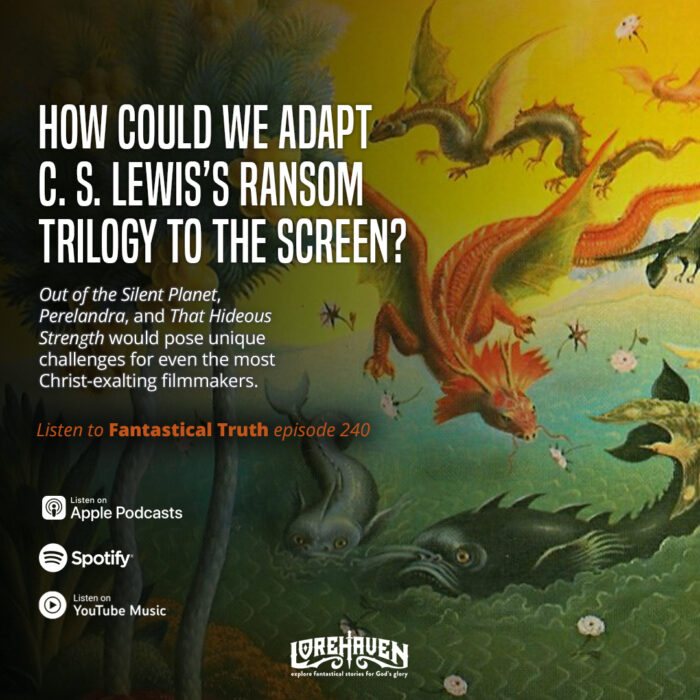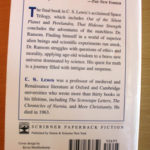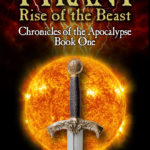Exploring The Light
 Recently we’ve had some interesting discussions here at Spec Faith about the horror genre, in part because of guest posts by author Mike Duran discussing his new nonfiction book, Christian Horror.
Recently we’ve had some interesting discussions here at Spec Faith about the horror genre, in part because of guest posts by author Mike Duran discussing his new nonfiction book, Christian Horror.
I’d venture to say there’s a consensus that darkness needs to show up in our stories. The central fantasy trope, for example, is the struggle between good and evil. One of the things that made The Lord Of The Rings so compelling was the struggle Frodo undertook to destroy the growing evil.
So as I look at the discussion, I’m thinking, what is the point of departure between those who read and write horror and those who don’t? From my perspective, the answer is “focus.” But I hear others saying something different.
One view (all quotes may be found in the comments section of either “Continuing The Horror Conversation” or “Seeing In The Cave”) is that horror is devalued:
It’s just odd to me how many of these articles come down against horror. If speculative fiction of the sci/fi fantasy is … like, horror is the redheaded stepchild in the less-reputable side of the family.
I’ve admitted this was my previous stand. I now believe horror has a place in the catalog of Christian fiction. At the same time, I think some of the reasons people offer as justification of horror is suspect.
One such justification is that Christian fiction traditionally has focused on what is safe and clean:
Mostly, it is a reaction to an industry of over-sanitized, “safe,” “inspirational,” “family-friendly” fare. The leap isn’t so much TO horror as it is AWAY from fiction that avoids realism and darkness.
And this from another commenter:
I’m not sure how they can show the light more. I mean, a lot of the problem of current Christian spec fic is that they don’t really engage with anything but the coziest, surface-level form of showing the evangelistic journey . . .
I think the idea of Christian horror is good in one sense that it’s possible to make Christian fiction more complex and adult in a plot sense. I can understand disliking gore or hard stuff, and not wanting a diet of it, but the problem with the light side is that it has all the substance of a cozy mystery about a detective and his cats. I don’t think it’s impossible to make clean, complex fiction, but I haven’t seen many good examples of it.
Perhaps these two comments strike at the heart of what I believe about Christian speculative fiction: an exploration of evil isn’t the answer to the problem of Christian fiction that doesn’t engage the world, or really even Christians, on more than a superficial level. Exploring the light is.
In truth, I think this approach is consistent with what Scripture tells us. Perhaps the sternest indictment comes in the book of Jeremiah:
“For My people are foolish,
They know Me not;
They are stupid children
And have no understanding.
They are shrewd to do evil,
But to do good they do not know.” (4:22)
I think we could just as truthfully say, They are shrewd to write about evil (or to explore evil), but to write about (or explore) good, they don’t know how.
One commenter said as much:
I can think of ways to write about Christians, but writing about God’s love beyond simple evangelism stumps me.
 I don’t think this idea is unique to this one writer. At the same time, I think, Ah, but there is so much more about God than just His love. For instance, we live in a culture that has increasingly denied the concept of a just God bringing judgment against those who stand against Him. Where are the stories that show a just God acting in wrath against evil? We have stories in which the heroes fight in order to survive, but who fights in order to judge the darkness?
I don’t think this idea is unique to this one writer. At the same time, I think, Ah, but there is so much more about God than just His love. For instance, we live in a culture that has increasingly denied the concept of a just God bringing judgment against those who stand against Him. Where are the stories that show a just God acting in wrath against evil? We have stories in which the heroes fight in order to survive, but who fights in order to judge the darkness?
C. S. Lewis was masterful in addressing themes that went beyond God’s love, though clearly, he didn’t hesitate to show that aspect of His nature as well. One of Lewis’s most famous lines, in fact, became so well known because it made people think about God in a new way (He’s not safe, I tell you …)
His more imaginative fiction—The Great Divorce, Screwtape Letters, Til We Have Faces—dealt with things like the reality of heaven and the reality of the spiritual in daily life and loving God more than others, even when we don’t understand what God is doing. His space trilogy does explore man’s condition, but in the first two volumes does so in comparison to holiness and purity. Only in That Hideous Strength does Lewis focus on man’s sinful nature as well as spiritual forces of evil.
In short, Lewis did not write “cozy speculative fiction.” Even his children’s books are laden with truth about God and His work in the world and with humankind. He addresses creation, death, the effect of sin, end times, obedience, God’s severe mercy, and much more.
Why, I wonder, have contemporary writers departed from this rich legacy? Why do we see the only answer to cozy stories to be an exploration of evil?












































I agree that dark stories or horror stories are not the only way to explore truth, etc. and I think we all need a variety of story types. One reason is because different people respond to different things. I know there’s been a lot of stories that I have seen people respond positively to, saying the stories moved them to tears, changed their lives, etc. But the same story had little to no impression on me. But then seeing the anime Fate Zero did not move me to tears but did make me feel a lot of emotion, helping me understand people better and all that. But someone else may not get anything out of that story because they find it raumatic.
I do think there are some boundaries not to cross, especially when it comes to nudity and sexuality in stories, but dark stories do have their place. If we only have light or cozy stories, then I think people lose out on a lot of he complexity in life and how difficult real life situations actually are, thus they will fail in life because they are unprepared.
Taking examples from real life experiences, when I was little I read stories that were simpler and lighter in many ways. There was darkness in those stories to be sure, but not something a little kid would feel the full ramifications of. In a lot of ways I would understand things like grace and forgiveness and feel like I could forgive even the most horrible people. But it wasn’t until I got older and truly started dealing with situations that tried my emotions that I could truly understand how hard it is for some people to forgive, or at least control their reactions to what hurts them. Stories are kind of like that, too. Narnia may be deep, but for many it may be difficult to notice the depth or actually apply it to their lives because it doesn’t necessarily throw them into the emotional hardship and complexity some darker stories have.
I think a story can be relatively light and have depth, but we must consider that darker things like tragedy and treachery create a lot of the situations that give even lighter stories their depth. Lion King, for instance, isn’t all that dark on the surface, so that’s where it may fail for some, but when looking at Scar and how selfish and manipulative he actually was, we can see the even the plot in a story meant for kids has a lot of its good lessons because of how dark Scar’s character was.
I agree, Autumn. I guess I see this vacuum, though—on one side, cozy stories about God and His love, on the other side, dark stories exploring evil. I think, there’s a gulf here that ought to be bridged. We need stories that show the good and evil struggle while exploring the good rather than the evil, that focus on the Light and not the darkness.
I don’t think anyone would claim that horror focuses on the Light. Rather, light might come in at the end, but it isn’t the main thrust of the story.
Compare that to The Lord Of The Rings. The focus was never on Sauron, always on Frodo and the Fellowship. Sure, Sauron, his minions, Saruman, Gollum, all played huge roles. They created the struggle that captivated readers. Without that struggle, there’s not much of a story. But the focus was on Frodo’s plans and Gandalf’s, and Sam’s loyalty and Aragon’s leadership and friendship between a dwarf and an elf. The story was not ABOUT the evil.
And that’s the kind of story I’d love to see more—only different. 😉 God is infinite, so I don’t think we can ever exhaust writing about Him or things of His in our fiction.
Becky
Yeah, though I don’t think horror has to always focus on the darkness. The stories are rather dark and sometimes scary, but even with me not seeing many horror stories I have noticed that some have a focus on the main characters as they face evil and try to escape or overcome it. I guess now days my impression is that horror doesn’t have to be about glorifying evil any more than fantasy has to be about magic.
Agree, Autumn, and I don’t think any of the Christian horror writers I know would believe their writing is glorifying evil. I know the novels I’ve read, don’t. But still, evil is the focus of the novel. Yes, the character is key, but it is, as you say, their struggle, the way they face or deal with, evil. I have come to accept this as a necessary story to tell for some.
On the other hand, I don’t think choosing to read something other than horror is a sign that Christian is choosing to put his head in the sand. And I don’t think Christian writers who want something more in their stories than feel-good sentimentality have no other option than horror.
My suggestion is to do something else other than exploring the horror—something I actually think is Biblical, whether or not it appears to serve art. But that last point introduces another whole topic. 😉
Becky
I definitely agree that horror isn’t the only option a person has in terms of stories that don’t put their heads in the sand. And if someone is only willing to see things through the horror lense, then that can also be another way of putting one’s head in the sand.
As far as evil being the focus of horror, if you mean that evil is the focus because the story is about the character’s struggles as he faces and deals wih evil, then wouldn’t most stories, or at least speculative ones, be horror? Or at least wouldn’t evil be their focus?
I think it’s more a matter of content and how the author addresses it rather than saying all horror stories definitely focus on evil and give it the spotlight. And then there is the way each reader or viewer takes the story. A lot of things we watch could be said to focus on evil, and we just don’t notice because the degree of mood setting and such isn’t the same as a horror movie.
I agree that people should keep exploring avenues other than horror, though. The stories I am workig on aren’t horror, though I may classify some as dark fantasy. My goal is usually to take a character and show the various ups and downs of their life, both the good and the bad. And through that I’d like to explore certain things, like loving and trusting God even though things seem to be falling apart around us and things aren’t going to turn out the way we want to. I would love to see more stories with that approach.
I agree with you about the “exploration” of evil being something a writer to calls himself or herself a Christian should not do. A lot of contemporary horror literature and films do nothing but explore and glorify evil. I can even think of some so-called “Christian thriller” yarns that read more like the tales to which I just referred where there is little to NO difference in what’s come to be called, in a word, torture porn. There’s nothing Christian about that, period. It’s done to make money, because that’s where the money is.That being said, let’s avoid equating the word “explore” with “depict.” Evil must be shown. Darkness must be presented before we can see the Light. That is the pattern of God’s own horror story, Mark 5:1-20, the Gadarene demoniac. It begins with the darkness, with the evil, with the pain, with the horror, if you will. But it ends with the man clothed and in his right mind and sitting at the feet of the Light of the world. God does not shy away from the darkness first. He shows it. He depicts it. Without the demons and what they did to this poor lost man, the rest of the story makes no sense, fails to glorify God in the proper way and is just not the way God chose to write it. Explore evil? Glorify evil? Exult in the darkness? No, never. But the Devil’s hand must be depicted if we are to see God’s Hand crush it. That’s the biblical pattern. And we should follow it accordingly.
HG, I see “exploration” as very different from “depiction” or “glorification.” For example, I think JK Rowling has said she was exploring death in the Harry Potter books. She didn’t ever revel in it or depict it in graphic detail, and she didn’t glorify it. She did show how it affected people. She showed the separation and the loss. She showed Voldemort’s efforts to overcome death. That’s the perfect example of “exploring” a subject.
I think some writers explore “the dark side” in order to understand it. They want to understand their own evil impulses (a la Romans 7). They want to understand what they’re up against in this spiritual war raging in and around us. I think that can be done without showing evil in graphic terms or by glorifying it.
You’ve mentioned the Gadarene demoniac before, but what you said here is precisely why I wouldn’t classify that story as anything close to horror. The focus of the story is not on the demons, though we see what they did to the man, their interaction with Jesus, and what became of the pigs when they entered them. The story, from start to finish, is about Jesus—first His arrival, His willingness to engage a man in the terrible condition he was in, to confront the demons, to demonstrate His power over them, and then to commission the man released from the demons to go and tell others about Him.
A horror novelist would not tell the story that way. There would be ninety percent of the story showing what the man endured and how hated or feared he was, how others had tried to control him, how he’d tried to rid himself of the demon power, how more and more of them invaded his life, assaulted his soul, and then in the end, he’d find release and freedom.
It’s a different story from the account the Bible tells.
Becky